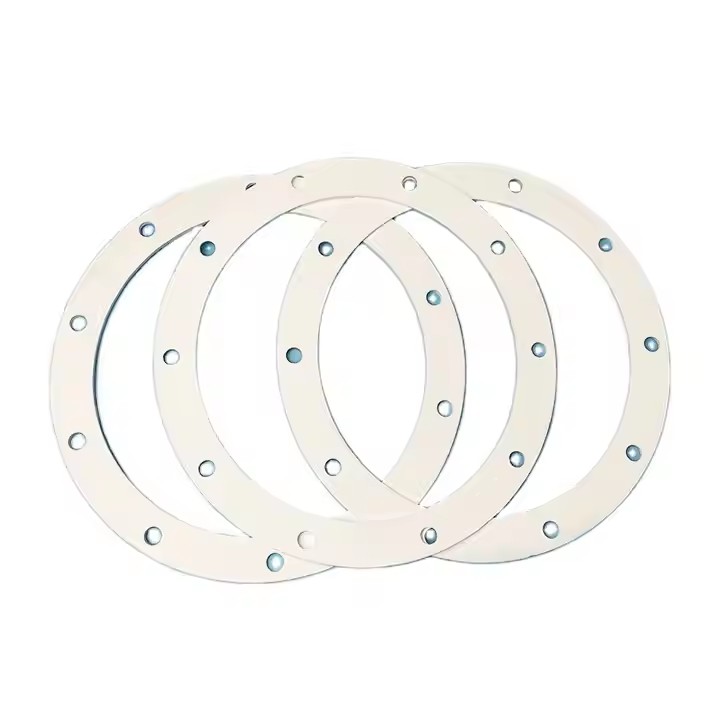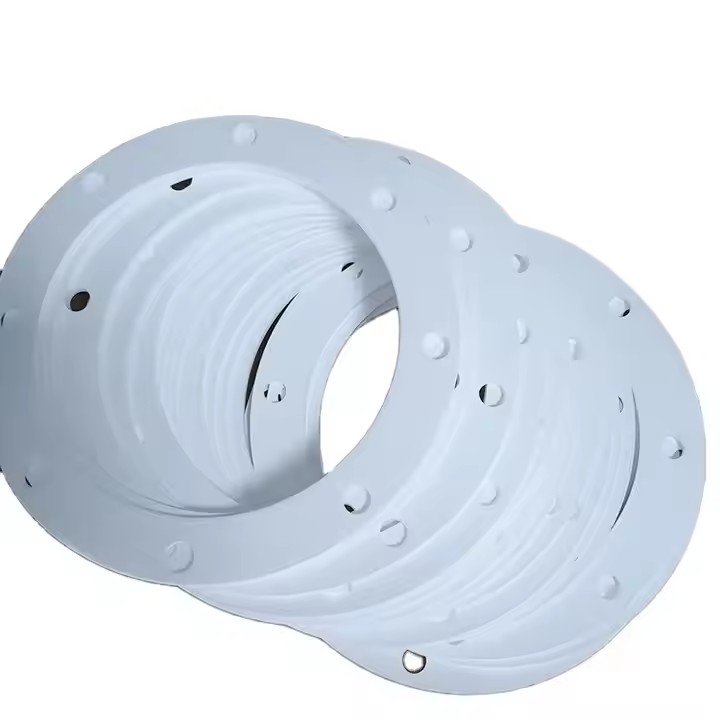Modified PTFE vs. Standard PTFE Gaskets: A Technical Comparison
1. Material Composition and Performance
Standard PTFE Gaskets (e.g., pure PTFE):
Made from virgin polytetrafluoroethylene, it resists acids, alkalis, and solvents. This material shows great chemical inertness across a pH range of 0 to 14.
Weaknesses: It can experience cold flow (creep) when subjected to constant pressure. This may result in seal failure over time.
Limited mechanical strength at high temperatures (> 100 °C).
Modified PTFE gaskets (e.g., filled or expanded PTFE):
Reinforced with additives like graphite (15–25%), glass fiber, or carbon fiber. This boosts compressive strength and lowers creep.
Expanded PTFE variants exhibit superior flexibility and conformability for irregular sealing surfaces.
Maintains PTFE’s chemical resistance while improving thermal stability (up to 200°C).

Modified PTFE Gaskets
2. Industry Applications
Standard PTFE:
Ideal for low-pressure, static seals in corrosive environments: chemical reactors, food processing (non-contaminating).
Limited to applications without dynamic stress (e.g., pump shafts).
Modified PTFE:
Excels in high-stress situations, like oil and gas pipelines. Also, handles aggressive chemical pumps and cryogenic systems, such as LNG storage.
Expanded PTFE seals excel in pharmaceutical cleanrooms due to zero particulate shedding.
3. Service Life and Maintenance
Standard PTFE:
Short lifespan (1–3 years) in high-pressure systems due to cold flow.
Requires frequent bolt retightening to compensate for creep.
Modified PTFE:
Lasts 5–8+ years under cyclic loads (e.g., compressor flanges).
Reduced maintenance: filler materials resist cold flow, maintaining bolt preload.

Standard PTFE Gaskets
Key Trade-offs
Factor
Standard PTFE
Cost: Lower ($20–50/kg)
Seal Integrity: Static applications only
Temperature Range: -100°C to +100°C
Modified PTFE
Cost: Higher ($60–120/kg)
Seal Integrity: Dynamic/static hybrid
Temperature Range: -200 °C to +200 °C
Conclusion: Standard PTFE works for basic corrosive environments. Modified PTFE gaskets, such as graphite-filled or expanded types, are very durable. They work well under extreme heat and stress. Industries like petrochemicals and cryogenics value long-term reliability. They find that the higher upfront cost of modified PTFE pays off in the end. This material leads to less downtime and lower maintenance needs.
 Hongwo Sealing Gasket
Hongwo Sealing Gasket


WhatsApp
Scan the QR Code to start a WhatsApp chat with us.